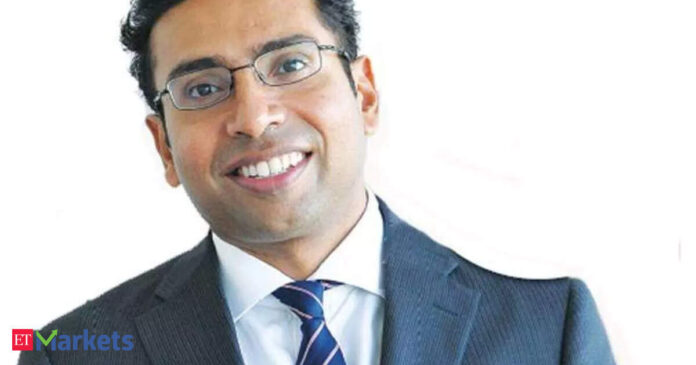The key fact for the Indian markets is that domestic liquidity is very strong right now. SIP numbers are once again hitting highs. But one of the sectors that is likely to be beneficiary of this trend rather than which is already in the making, is the AMC space. What is your take on that as we are seeing this liquidity driven movement in select sectors. Can AMCs be a good bet?
Saurabh Mukherjea: I would like to say that as a shareholder in my own AMC, I have to be realistic here. Given that some really big boys are entering the AMC space with lots of capital, many billions of dollars, I have a feeling that we are going to see profit margin compression in the years ahead. This is a classic capital cycle playing out where lots of AMCs are coming up and plenty of capital is coming in. So, coming back to our portfolios, we have sold out on our stock market plays, whether it is AMC, wealth management, the infrastructure which is the stock market. So caution is a relevant part of investing and looking at the juicy valuations in that space, we have sold out on the stock market related to the wealth management, asset management related plays in our portfolios.
But last time we interacted, we had just received the first sprint of tariffs on India and now that situation has escalated so much because right now temporarily even though that may be the case, we are still at 50%. What could be the impact on the markets if this number were to continue to be above 25% even after the meeting that we are all watching very closely?
Saurabh Mukherjea: My reading is much of this is negotiation and hardballing of India. The critical negotiation here as you are alluding to is the Putin-Trump negotiation. Clearly to my mind, the American president is putting pressure on Russia by punishing India for buying Russian oil.
Hopefully, the Putin-Trump negotiation ends up in something fruitful whether it is Ukraine, whether it is some sort of broader deal between Russia and America. Once that piece is off the table, tariffs will come down. A 20% tariff on India and 30% on China will be a decent outcome. It will give India an advantage vis-à-vis China. It will give China plus one theme a fillip. It will allow America to reduce its dependence on China. So, 20% tariff on India and 30% on China seems to be the steady state that we will end up say four-five months out once the Putin-Trump negotiations reach some logical end.
What about the new-age tech? I have been chatting with many market experts and everyone is scratching their head to figure out what could be the next banks. Now, it is going to take some time to reach that kind of weightage that banks cherish in share right now, but where can leadership emerge and give banks a stiff competition in years to come?
Saurabh Mukherjea: In banking, the RBI does in a way helped the incumbents by blocking new entry. So, AU Finance got the first universal bank license in 10 or 11 years. In 30 years, India has had three new universal banks. But the RBI blocks entry into banking and that in a way makes the job of the incumbents slightly easier. But in broking, in asset management, there is no such blocking of entry and the sweeping up of the broking asset management space on the back of tech disruption of asset management and broking is upon us.
We have seen the impact of firms like Zerodha, Groww. The digitisation of broking and asset management is reasonably easy to fathom and even small players like us have not built a single branch and yet we have been able to grow the business reasonably smoothly just by focusing on high net worth investors.
So, the tech broking, tech asset management space, the use of fintech to drive broking and asset management will be a big theme for the next decade. In any such construct, where technology is being used, the big will get bigger and better and therefore, the smaller players, especially the players who do not have technology, will fall behind. We will see consolidation in broking and asset management driven by technology and it will be very interesting to see that the newer entrants into the AMC space will be able to use fintech to disrupt the space.
We have not seen much of this interestingly in America and the broking that we saw Robinhood do in America. In a way, Robinhood’s counterpart here would be a Zerodha, but in American asset management, we have not seen tech play a disruptive role in consolidating American asset management. It will be interesting to see whether the new-age Indian AMCs are able to do that. But broking seems relatively clear and I think AMCs will also consolidate on the back of fintech.



